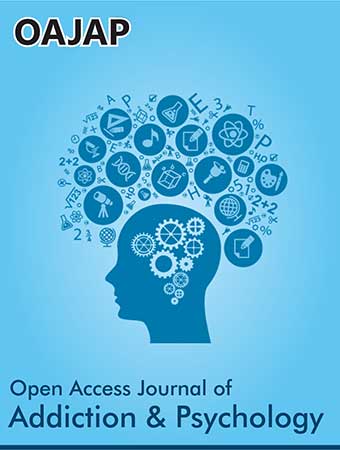 Research Article
Research Article
Combat Exposure and Self-Efficacy Predicting Psychological Distress Among Military Personnel Exposed to Boko-Haram insurgency: The Moderating Role of Unit Support
James Abel1*, Fredrick Sonter Anongo2, Binan Evans Dami3 and Zubairu Kwambo Dagona4
1 Headquarters, 33 Artillery Brigade, Shadawaka Barracks Bauchi, Bauchi State, Nigeria
2Department of Psychology, Faculty of Social Sciences, Nigeria
3Mental Health and Psychosocial Support Officer, International organization for Migration, Gambia
4Director, Centre for Peace and Conflict Management, Nigeria
James Abel, Headquarters, 33 Artillery Brigade, Shadawaka Barracks Bauchi, Nigeria.
Received Date: June 13, 2019; Published Date: June 28, 2019
Abstract
Military deployment come with a host of psychological challenges that affect soldiers’ quality of life and performance in future military operations. Posttraumatic stress disorder and depression are conditions commonly associated with combat deployment among military veterans. Previous studies indicate that, a substantial number of military returnees from combat zones experience psychological distress, manifesting in form of anxiety and depression. However, these studies have provided little empirical evidence on the comorbidity in a single population of study. In Nigeria, for instance, there is still unfilled gap as to whether military personnel with combat-related PTSD would also experience depressive symptoms. In addition, little is known about the role of unit social support in the relationships between combat exposure, self-efficacy and the two dimensions of psychological distress. This study therefore investigated the role of combat exposure, self-efficacy on both anxiety and depression components of distress, and the moderating role of unit social support in the relationships between these variables among Nigerian military returnees from Boko-Haram insurgency. A cross-sectional survey method was adopted. Standardized questionnaires were used to collect data from 605 military returnees across six military units in three northern states. Pearson correlation and hierarchical multiple regression were used to analyzed the carefully retrieved data. Results revealed a significant negative relationship between combat exposure (r=.089;<.05) and self-efficacy (r= -.019; <.05) on anxiety. Unit social support showed a significant negative relationship with anxiety (r= -.120; .01) and depression (r= -.115; >.01). Results also indicated that combat exposure independently predicted anxiety (β= .06, t = 1.54, p <.05) and depression (β= .58, t = 1.54, p <.05), while self-efficacy did not predict neither anxiety (β= .01, t = -24, p >.05) nor depression (β= .09, t -24, p >.05). Further results indicated a significant interaction of unit social support and combat exposure on anxiety (ΔR2 = .021, β,.08, t, .47; p >.05) and self-efficacy (ΔR2 = .021, β,-.41, t, -2.00; p >.01) on anxiety component of psychological distress. The influence of self-efficacy on anxiety was low at high level of unit social support compared to when unit social support was low. This shows that providing immediate support during deployment to veterans could attenuate the negative effects of combat and self-efficacy on anxiety. Therefore, Nigerian military authority, colleagues and friends of the personnel should always provide sufficient support particularly during combat to boost solders’ confidence and reduce the deleterious effects of these risk factors on anxiety level of their personnel in order to promote effective performance.
Keywords: Combat exposure, psychological distress, unit social support
-
James Abel, Fredrick Sonter Anongo, Binan Evans Dami, Zubairu Kwambo Dagona. Combat Exposure and Self-Efficacy Predicting Psychological Distress Among Military Personnel Exposed to Boko-Haram insurgency: The Moderating Role of Unit Support. Open Access J Addict & Psychol. 2(2): 2019. OAJAP.MS.ID.000532.





